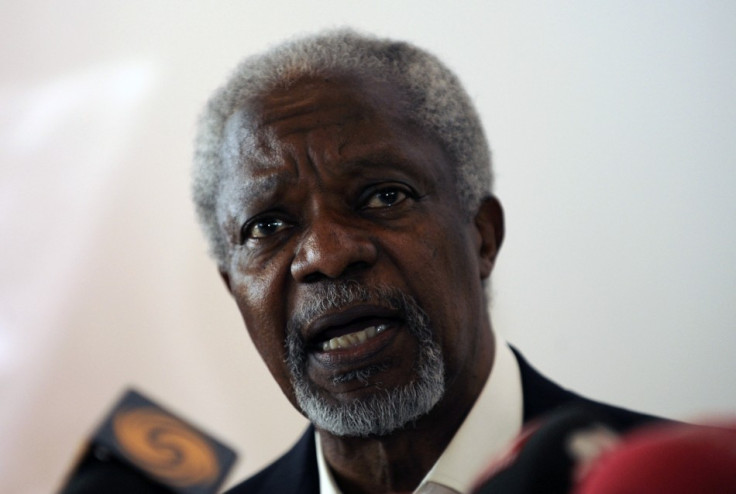Syria: UN Envoy Annan to Meet Assad after Houla Massacre

UN special envoy Kofi Annan is expected to meet Syrian President Bashar al-Assad in Damascus after the organisation condemned Syria for the massacre of at least 108 people in the town of Houla.
From the meeting, Annan hopes to retrieve his failed peace plan, as Syria faces mounting international criticism for its role in the latest carnage, which left 49 children and 34 women dead.
The UN Security Council, including nations close to the regime such as Russia and China, has stigmatised the "outrageous use of force" by the Syrian government.
"The security council condemned in the strongest possible terms the killings, confirmed by United Nations observers, of dozens of men, women and children and the wounding of hundreds more in attacks that involved a series of government artillery and tank shellings of a residential neighbourhood," a statement from the UN said.
The statement is mitigated by Russia's remarks that it is unlikely government forces would have killed civilians at point-blank range.
Bashar Ja'afari, Syria's ambassador to the UN, rejected what he called a "tsunami of lies" from some security council members.
"Neither [UN observer mission head Major General Robert] Mood nor anybody else told the security council in the informal session that he would blame the Syrian government forces for what happened.
"It is really pitiful and regrettable that some members of the council came out just a few minutes after Gen Mood had finished his briefing to mislead you, to tell you lies about what happened," he said.
Jeremy Greenstock, the UK's former ambassador to the UN, told BBC Radio 4 that he is pessimistic over the possibility of Annan being able to solve the crisis.
"I don't think he [Kofi Annan] can stop either the regime or the opposition from using arms," he said. "Most likely scenario in Syria is the increase of the use of arms on either side and descent into further violence."
The UN monitoring team deployed in the country could not prevent the shelling of civilians in Syria.
Opposition groups have claimed the Syrian army has also bombed the city of Hama, killing at least 41 people.
After a series of attacks by rebel Free Syrian Army fighters, tanks and infantry vehicles opened fire on several neighbourhoods of Hama. Among the victims are five women and eight children.
"Tank shelling brought down several buildings. Their inhabitants were pulled out from the rubble and many are in a critical condition," said a statement from the Hama Revolution Leadership Council.
Hama was bombarded in 1982 by Assad's father and predecessor Hafez, who exterminated between 10,000 and 25,000 people in an attempt to suppress an uprising by the Muslim Brotherhood.
© Copyright IBTimes 2025. All rights reserved.






















